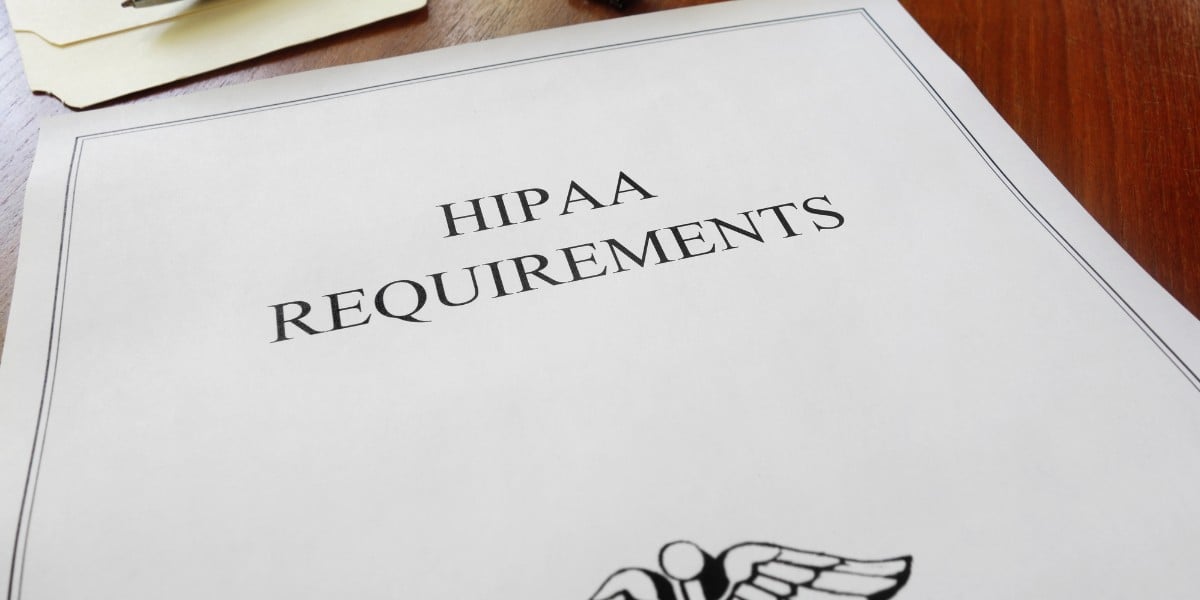
Staying informed about legislation that applies to minor patient data helps healthcare providers and organizations adapt their practices to remain compliant and responsive to evolving patient privacy concerns. Understanding the requirements set by these regulations helps implement appropriate technical and administrative measures that prevent unauthorized access, disclosure, or breaches.
HIPAA: Protecting Patient Privacy
Privacy rule
The HIPAA Privacy Rule establishes national standards for the protection of individuals' medical records and other personal health information. It applies to covered entities, including healthcare providers, health plans, and healthcare clearinghouses. The Privacy Rule governs the use and disclosure of protected health information (PHI) and imposes requirements to safeguard the privacy of patients, including minors.
Security rule
The HIPAA Security Rule complements the Privacy Rule by specifying security standards for electronic protected health information (ePHI). It requires covered entities to implement administrative, physical, and technical safeguards to protect the confidentiality, integrity, and availability of ePHI. These safeguards include access controls, encryption, audit controls, and regular risk assessments.
Minimum necessary standard
HIPAA includes a minimum necessary standard, which requires covered entities to limit the use, disclosure, and request of PHI to the minimum necessary to accomplish the intended purpose. This provision helps restrict access to patient information and ensures that only authorized individuals have access to it.
Patient rights
- Right to access: Patients have the right to access and obtain copies of their health records, including those of minor patients they have legal authority over.
- Right to request amendments: Patients can request corrections or amendments to their health information if they believe it is inaccurate or incomplete.
- Right to request restrictions: Patients can request restrictions on the use or disclosure of their health information, although covered entities are not obligated to comply with all requests.
- Right to request confidential communications: Patients have the right to request alternative means or locations for receiving communications about their health information to enhance privacy and security.
- Right to an accounting of disclosures: Patients have the right to receive a list of certain disclosures of their health information made by covered entities.
- Right to file complaints: Patients have the right to file complaints if they believe their privacy rights have been violated. Complaints can be submitted to the Department of Health and Human Services' Office for Civil Rights (OCR).
Related: How does HIPAA apply to minor patients?
HITECH Act: Strengthening Data Security
Extending HIPAA
The HITECH Act extended the reach of HIPAA's privacy and security requirements beyond covered entities to include their business associates. Business associates are entities that handle protected health information (PHI) on behalf of covered entities, such as data management companies, billing services, and healthcare IT vendors.
Focus on electronic health records (EHRs)
The HITECH Act emphasized the adoption and meaningful use of EHRs. It recognized the potential benefits of electronic health information exchange, such as improved care coordination, reduced medical errors, and increased efficiency. The Act incentivized healthcare providers to implement certified EHR systems and meet specific criteria for meaningful use, including the secure exchange of health information, including that of minors.
Privacy and security of EHRs
The HITECH Act established provisions to strengthen the privacy and security of EHRs. It mandated the development of standards and protocols for secure health information exchange, including encryption and authentication mechanisms. The Act required covered entities and business associates to implement comprehensive policies, procedures, and technical safeguards to protect EHRs from unauthorized access, disclosure, or breaches, thereby safeguarding minor patient data stored within these systems.
Breach notification requirements
The HITECH Act introduced mandatory breach notification requirements for unauthorized disclosures of unsecured PHI. Covered entities and their business associates must promptly notify affected individuals, the Secretary of Health and Human Services, and, in some instances, the media, about breaches of unsecured PHI. This provision ensures that individuals, including minors, are informed about potential privacy breaches. It enables them to take appropriate steps to protect their information.
Enforcement and penalties
The HITECH Act increased the enforcement of HIPAA regulations by imposing stricter penalties for non-compliance. It authorized the Office for Civil Rights (OCR) to conduct audits and investigations, impose civil monetary penalties for violations, and strengthened the OCR's ability to enforce compliance with privacy and security regulations, reinforcing the protection of minor patient data.
Related: Risk analysis for rural healthcare organizations
COPPA: Safeguarding Children's Data
Purpose of COPPA
The Children's Online Privacy Protection Act (COPPA) aims to protect the privacy and online safety of children by placing requirements on website operators and online service providers that collect personal information from children under 13 years old. The law addresses the unique privacy concerns associated with children's online activities.
Collection, use, and disclosure of personal information
COPPA imposes restrictions on collecting, using, and disclosing personal information from children under 13. Personal information includes a broad range of data, such as names, addresses, phone numbers, email addresses, and, in some cases, health information.
Parental consent
COPPA requires website operators and online service providers to obtain verifiable parental consent before collecting, using, or disclosing personal information of children under 13. This consent must be obtained through acceptable methods specified in the law, such as obtaining a signed consent form or providing a credit card transaction.
Privacy policies and notice requirements
COPPA mandates website operators and online service providers to provide clear and comprehensive privacy policies explaining their data collection practices. They must also provide notice to parents regarding the collection, use, and disclosure of personal information and the opportunity to review and request the deletion of their child's information.
Age verification
COPPA requires website operators and online service providers to take reasonable steps to ensure that they are obtaining verifiable parental consent before collecting personal information. This includes implementing mechanisms to verify the age of users and obtaining consent from parents or guardians.
Prohibition on targeted advertising
COPPA prohibits the use of targeted advertising to children under 13 based on their personal information or online activities. It aims to prevent the collection of personal information for marketing purposes and limit children's exposure to inappropriate advertising.
State-specific laws: additional protections
Role of state laws
State laws often enhance privacy protections by imposing stricter requirements or additional safeguards. They can require healthcare entities to implement specific security measures, consent processes, or data breach notification protocols to protect minor patient data.
Examples of prominent state law
- California's Confidentiality of Medical Information Act (CMIA): CMIA imposes stringent requirements on healthcare providers and facilities in California to protect the confidentiality of medical information, including that of minor patients. It outlines consent requirements, and restrictions on disclosure, and sets forth obligations for data security and breach notification.
- Texas Medical Records Privacy Act: The Texas Medical Records Privacy Act establishes privacy rights for patients, including minors, and sets forth guidelines for healthcare providers regarding the collection, use, and disclosure of medical records. It imposes limitations on third-party access, marketing activities, and allows patients to request amendments to their health information.
- New York's protection of personal health information law: New York's law focuses on protecting the privacy and security of personal health information, including that of minor patients. It imposes obligations on healthcare entities to implement safeguards, obtain consent, and provide patients with access to their health information.
Related: HIPAA Compliant Email: The Definitive Guide
Subscribe to Paubox Weekly
Every Friday we'll bring you the most important news from Paubox. Our aim is to make you smarter, faster.



